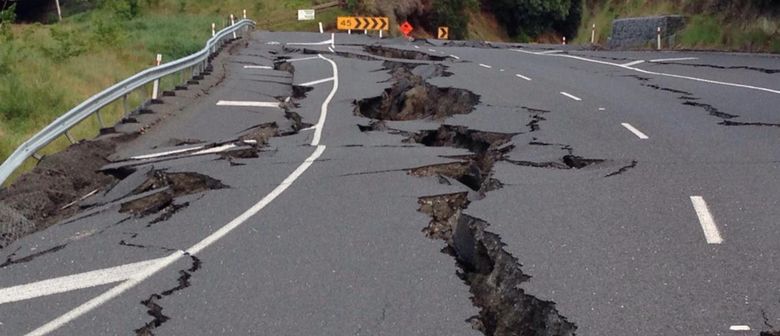Hot topics: Should local government go ‘back to basics’?
Sue Wards, Editor
11 September 2025, 5:04 PM
 We asked candidates if they agree with central government that councils should keep their focus on roading, water, rubbish and infrastructure.
We asked candidates if they agree with central government that councils should keep their focus on roading, water, rubbish and infrastructure.The extent of local government’s mandate is the fourth hot topic facing the Upper Clutha which the Wānaka App has asked local body election candidates’ their views about.
The government has signalled a shift in priorities for local councils, introducing draft legislation aimed at tightening focus on core services and reducing costs to ratepayers.
The Local Government (System Improvements) Amendment Bill, introduced to parliament in July, proposes removing the four ‘well-beings’ - social, economic, environmental, and cultural - from council mandates.
Local Government minister Simon Watts said councils had “drifted” from essential responsibilities like roading, water, rubbish, and infrastructure, and that the government was drawing a line.
“This bill puts councils back to work on the basics - their core services - so ratepayers see real results for what they pay,” he said.
The Wānaka App asked candidates for the Wānaka Ward of Queenstown Lakes District Council (QLDC) and the Wānaka Upper Clutha Community Board (WUCCB) what they think about the government’s proposal
Council candidates respond
Quentin Smith: “I support keeping the four wellbeings – social, economic, environmental, and cultural – in local government’s mandate is really important. They give councils the scope to look after the bigger picture of community needs, not just pipes and roads. Stripping them out risks narrowing our focus too much when healthy communities need balance across all those areas. We constantly hear from community groups like sports clubs and environmental groups and it would be devastating to leave them out of the picture and would fail our community to do so. While we need to be more careful with costs and ‘nice to haves’ I don't consider sport facilities, community services and libraries to be expendables for a well functioning community.”
Lyal Cocks: “The four wellbeing words come and go from government legislation, but they cannot be ignored and must be provided for in some way. Funding the actions to satisfy these ‘wellbeings’ over and above essential infrastructure and compliance projects is the issue. Environmental wellbeing is becoming embedded in all we do but providing for social and cultural wellbeing is more discretionary and councillors have to balance the spend in these areas against the financial burden on ratepayers.”
Barry Bruce: “Over recent years successive central government directives have required local councils to apply physical and financial resources to issue of a more ‘social welfare’ nature rather than traditional council functions, such as, roading ,water services and community facilities. While these directives likely have reduced central government social responsibilities the resultant costs to councils in staff resources and financial budgets has redirected funding that may otherwise be applied to infrastructure and core services.
This emphasis on ‘wellbeings’ has not always been understood or well received by ratepayers during periods; increasing rates and infrastructure failings and has been seen by many as a ‘nice to have’ rather than a ‘must have’. I am supportive of the change in direction signalled by central government encouraging a back to basics approach to core services. I am also mindful of the need for decision makers to take environmental and community sentiments into account when setting short and long term plans and budgets.”
Niki Gladding: “I think this government is hellbent on undermining the ability of local people to shape local places. Don’t get me wrong, I absolutely think councils need to have a much greater focus on delivering efficient, good quality, cost-effective core infrastructure. But it shouldn’t be lost on anyone that councils are being coerced or forced into relinquishing control of three waters infrastructure i.e. a huge chunk of their (your) core infrastructure. And ‘fast tracked’ consent applications and RMA reform will further stifle our (your) ability to influence what this place becomes in the future.
What I believe the government needed to do was return power to the people by requiring councils to be more transparent and accountable with their Long-Term Plan and Annual Plan budget processes. Instead of limiting local government’s purpose as far as it has, the bill could have required that budget lines for operational expenditure be set out for community feedback – project by project, in detail, allowing communities and councillors to decide whether specific environmental, social, cultural, or economic initiatives are worth funding."
Craig Gasson: “To quote the minister: ‘Kiwis are frustrated with rising rates, expanding bureaucracy, and poor value for money. This Bill puts councils back to work on the basics, their core services, so ratepayers see real results for what they pay’.”
Yeverley McCarthy: “While I do have a very serious sense of social justice, I do not feel that the QLDC should be involved in its delivery via the four wellbeings, other than to be aware of and understand the needs of the community across the socioeconomic mix. Unfortunately we can not be all things to all people and the principle job of the council is to provide services for the health and stability of the area while prudently planning for the future. I believe that we need to focus on our core services, roading, infrastructure, water and waste, and deliver them in a way that is fiscally prudent. That in itself makes for good wellbeing outcomes.”
Nicola King: “I find it disappointing to see the removal of the four ‘wellbeings’ from local government’s mandate. To me, it feels like an unnecessary and short-sighted move, more about undoing Labour’s ideas than genuinely improving outcomes. The focus seems to be narrowing onto financial stability alone, but I don’t believe social, cultural, economic, and environmental factors can - or should - be separated from the decisions councils make.
The reality is that infrastructure pressures such as water upgrades, roading, and other core services are already consuming most council budgets. These demands inevitably push out the ‘nice-to-have’ projects. But by removing the four wellbeings, we risk further stripping councils of their ability to look after communities in a more holistic way.
I’d like to think that QLDC will continue to take a broader approach despite these changes. The council’s Strategic Framework and Investment Priorities have, until now, placed community aspirations and wellbeing at the centre of decision-making. That framework is heavily grounded in the four wellbeings, and I hope it continues to shape how our district plans for the future.”
Cody Tucker: “On the four wellbeings, I don’t support removing them until they have a better option. Mainly because these are fairly interwoven into what defines a successful district when it comes to planning and building cohesive communities. Someone will still have to build and maintain sports centres, parks, cemeteries, art centres, libraries, public spaces, events in public spaces, provision for accessible housing etc.
There hasn’t been an answer to who’s going to do this, just a ‘pipes and roads’ rhetoric when pipes are going into a separate organisation now anyway and funding for roading is collected by government through RUCs.”
Thorsk Westphal did not respond.
Community Board candidates respond
Simon Telfer: “I see my role as building an inclusive, progressive and prosperous community. The four wellbeings are integral to this and it's outdated to think that each wellbeing is not interdependent on the other. If I hadn't have stood up and organised a community meeting to kickstart the focus on healthcare services in the Upper Clutha where would we be now? Enjoying and thriving in Wānaka is more than just the provision of ‘core services’.”
John Wellington: “I strongly oppose the proposal to remove the “four wellbeings” from local government mandates. Stripping councils of this responsibility would weaken their ability to serve communities effectively. The current definition of “core services” is far too narrow, excluding essential functions like cemeteries, public toilets, animal control, liquor licensing, and building and resource consents - services that residents rely on every day.
QLDC is already focused on the basics. In 2024, nearly 90 percent of capital investment went into roads and three waters infrastructure. The real driver of soaring rates is not local government overreach, but unfunded mandates from central government - particularly costly new three waters regulations - combined with construction inflation and a limited contractor market. My own rates rose 29 percent this year, and many households are struggling with similar increases.
Efficiency must always be pursued, but cutting out the four wellbeings is the wrong solution. Our councils must retain the ability to strengthen local economies, protect our environment, and respond to social and cultural needs. These are not “extras” but core responsibilities that reflect
community priorities. Taking them away would only diminish local democracy and leave our communities worse off.”
Kathy Dedo: “We’ve been here before, with the four wellbeings introduced in the 2002 Local Government Act with an aim to promote wellbeing in our communities through these four pillars supporting sustainable development. In 2012 they were removed by the National-led government, then reinstated in 2019 by the Labour-led one. This has become a political football, with our local communities being kicked around by central government withholding funding from councils.
I think the discussion of ‘need-to-have vs nice-to-have’ is simplistic in a world where quality of life is determined as much by a sense of community support and connection, a thriving environment, housing and health security as it is by safe roads and sewage systems. Of course these are all integrated, and to pull them apart, only partially funding what residents need, is frustrating. Having said that, other aspects of the proposal like enhancing transparency and efficiency of procurement and service delivery are quite sensible.
Sustainable development was the original aim of including the four wellbeings – I believe this remains a goal for the Upper Clutha and that the wellbeings are still a useful framework for achieving it.”
Chris Hadfield: “The removal of the wellbeings makes no sense. There is no point in providing quality infrastructure if the ratepayers are not able to function properly because any outside source of feeling good is gone. We would not have survived Covid nor evolved the same without arts, culture and more. There are better ways for councils to afford the essentials than cutting back on this area.”
John Bache: “I understand the government’s intention: to refocus councils on core services like roads, water, and waste, improve efficiency, and curb rate increases. However, the risk is that removing the statutory mandate for social, economic, environmental, and cultural well-being strips councils of the necessary flexibility to meet community-driven needs.
Local councils like ours should work holistically - blending infrastructure, creative community spaces, cultural initiatives, and environmental stewardship - because they understand local context. This layered approach shaped how councils pursue long-term outcomes for the communities they serve. Removing the ‘four wellbeings’ risks narrowing the focus to ‘pipes and potholes’ only.”
Linda Joll did not respond.
PHOTO: Supplied







